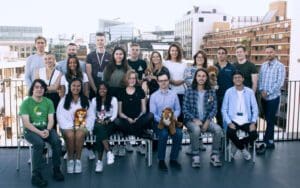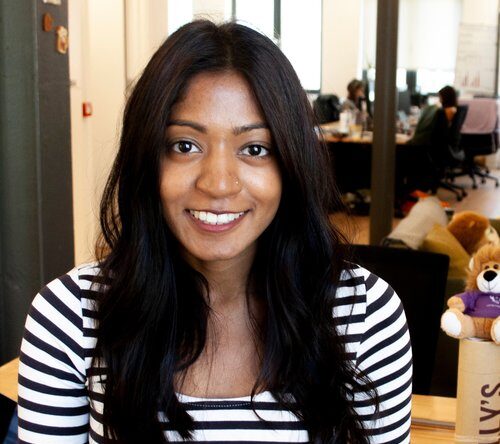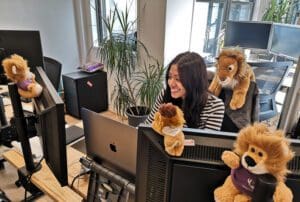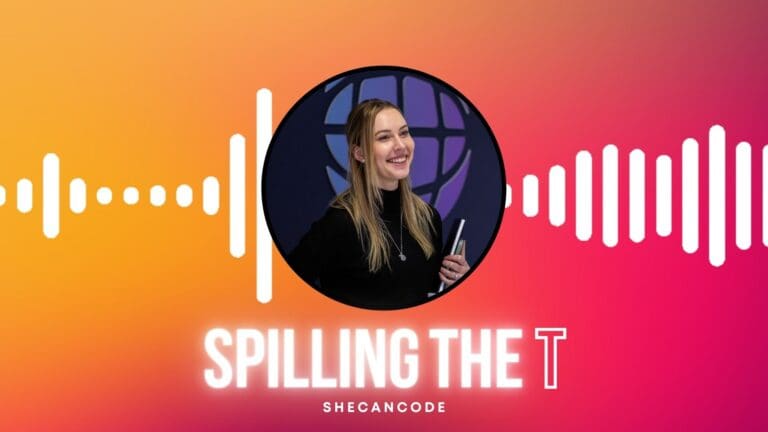Tell us about your journey into tech
I originally did a degree in Marketing Communications. While I played around a lot with computers as a teenager and made one too many GeoCities websites, it didn’t dawn on me to pursue it as a career at the time and marketing felt like the right thing to study.
After working in PR & marketing for around 4 years at corporates, I switched to freelancing–working with startups and NGO’s to improve their content marketing and online presence.
There were times where I had to learn bits of HTML & CSS to edit blog posts for clients and I found that quite interesting, so I signed up for an online frontend development course. After about a year, I figured really wanted to give programming a shot, so I scaled down my freelancing work to have more time to learn. That was when I started learning JavaScript.
I found it incredibly challenging at first and wanted to give up more times than I can remember, thinking I would never ‘get’ it. Looking back, I’m so glad I didn’t. With lots of practice, it eventually began to stick. I remember reaching out on online forums, asking what now seem like trivial questions, and receiving so much advice and direction which really helped unblock me.
Tip: Don’t be frightened to use online forums. The diversity of responses is invaluable to help you progress
“It wasn’t necessarily something that I picked up straight away, I had to persist with it but eventually it stuck!”
Patience and Commitment
It took me about a year and a half of working while learning how to code before I felt ready to begin applying for jobs.
During that time, I did lots of tutorials and exercises including ones on Treehouse (highly recommended!), Freecodecamp, Codewars, and participated in an all women’s coding course.
The turning point for me was doing Wes Bos’ React for Beginners and I remember feeling completely overwhelmed, but I was determined to understand the basics of React, so I ended up doing it twice.
I then took what I built in that course and used it as a starting point for my own web app. I found that I’ve learnt so much more that way. While tutorials are great when you’re new to a topic, it’s incredible how much more you end up learning by jumping into the deep end and building something without structured guidance–it’s also a great way of validating everything you’ve learnt so far and becoming better at problem-solving (and Googling!).
Tip: Tutorials are a great starting point, but nothing compares to building your own stuff through trial and error.
How did you hear about LoyaltyLion?
I met them at Silicon Milkroundabout and they were all friendly. More importantly I thought that their product, which helps brands build data-driven loyalty programs, was different. About a week later, I got an email from them and was invited for an interview.
They were the first company I interviewed with. I consider myself extremely lucky to have gotten an offer for the first job I applied for. It just so happened that the role they were looking to fill did match my skill level. Plus, it felt like a good cultural fit both ways.
From day one, the team has been incredibly supportive and invested in my progress as a developer. Within a few days I was deploying my first change to production. This was daunting but also immediately made me feel part of the team. Since then, I’ve worked on new and existing features within frontend and backend areas of the codebase.
LoyaltyLion and Diversity
Overall, LoyaltyLion’s gender split is around 50/50 which is pretty great. There are currently six people in the software engineering team. Although I’m the only woman at the moment, I’ve never felt sidelined in any way–at the end of the day, I’m just one of the engineers.
It’s been a tough journey at times, but it’s also been so rewarding. As much as I felt that I was learning tons from online tutorials and courses, it doesn’t compare to how much knowledge I’ve gained in my first 6 months as a software engineer.
Tips for learning
Build a varied portfolio. This could include side projects as well as projects that you’ve built from tutorials. They don’t have to be overly complicated. It communicates that you’re passionate about programming and that you like to experiment in your spare time.
Leave the comfort zone of tutorials and start building side projects. Even when you feel like you’re not ready, it’s a great way to practice problem-solving. You’d be surprised at how much you actually know.
Finished building an app from a tutorial or course? Try building it again from scratch. Branch off it and add features to make it your own to reinforce what you’ve just learned.









